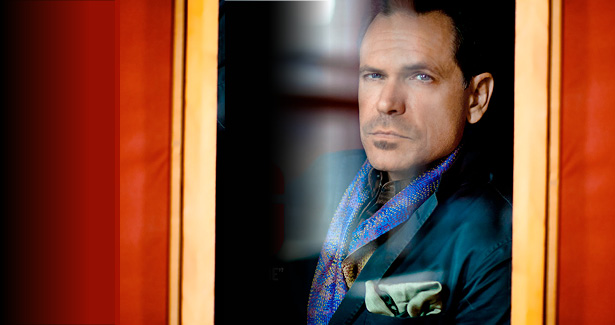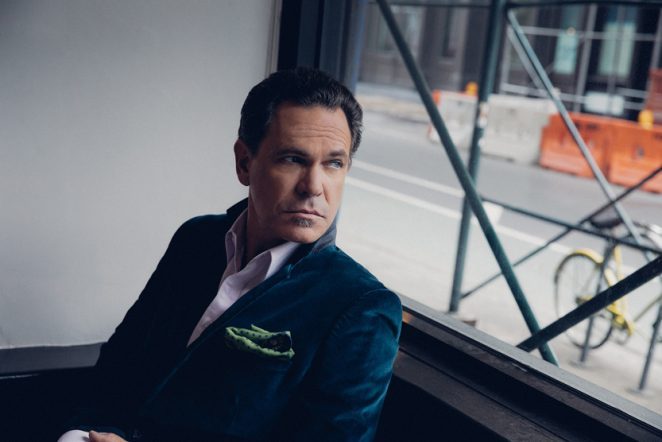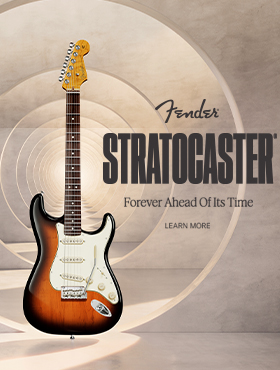
The New York Times declared jazz singer Kurt Elling to be “the standout male vocalist of our time.” Over a dozen Grammy nominations, a Grammy win and topping the DownBeat Critics Poll for fourteen consecutive years would back up the New York paper’s claims. When interviewing Elling about music, as I did this week, he speaks in terms of “the piece” or “the work”. More than just singing songs, Elling treats the material he’s working on like an artwork, dabbing colours to see if they suit, moulding form in a way it hasn’t been viewed before, and attempting to create interesting sonic information which he can convey lovingly to an audience. Kurt was talking to me from his home in New York before packing his bags to head back down to Australia for a national tour beginning next week. By Greg Phillips
You have lived in New York for a decade now, is there a jazz club where you play quite a bit and call home?
I definitely play Birdland most often. The Lincoln Centre has been very kind to me as well, it’s great to have friends there and there’s always a reason to go back … always something exciting happening. The next thing I will be doing there is a Jon Hendricks tribute in September for a couple of nights.
Who else is involved in that?
Jon’s daughters Aria and Michelle, Janet Siegel from Manhattan Transfer, Sheila Jordan and we’re working on a couple of other surprise guests. This is not the official Jon Hendricks tribute, we are planning that for 2019.
You grew up in Chicago. How much Chicago is in your music and do you think you’d be a much different singer if you grew up in another city?
Well I do. I’m not sure that I would a jazz singer at all had it not been for the musicians in the Chicago music scene and for the spirit which is there and the opportunities that I had. I was very fortunate to be able to play a lot of dates and to hustle up a lot of work that maybe I wouldn’t have been able to here in New York. Certainly the amount of stage time I had and the development I got was all shaped by the time I had in Chicago.
When you were young, what was first song that really had an effect on you?
Wow I’m not sure that there was one. I have never been a … call your favourite … kind of a person. It was the whole ethos of the music that was really calling out to me.
You played various musical instruments growing up. Why did you decide that the voice was going to be your instrument?
I felt like I could always get a sound out of it right away and could always play and sing in tune. It gave me the most joy. I just had the most feeling for it, I didn’t really have a feeling for any of the other instruments. That meant that I didn’t practice much and meant I never really got a good sound out of anything else.
I wanted to ask you about a couple of career milestones … what they meant to you personally and career wise … In 1995 you were signed to Blue Note Records … what did that signing mean to you?
Well it was a thrill for sure to be signed to the premier jazz label in the world for my very first record and then to get a Grammy nomination from that record … we got a lot of dates from it. It was the start of a lifetime of touring. I made a lot of wonderful friends there at Blue Note, one’s which I made at the time I still cherish. The memories of the six records I made there, I am very proud of and over those six records I can certainly hear a development of my technique and sound. If one listens, I think one can hear a through-way to the recordings I make these days but I hope that one can hear a much more technically developed and sophisticated person on my end in the work that I am able to do.
In 2009 you won a Grammy Award for Best Vocal Jazz Album. How did that make you feel?
Well to get shiny things is always wonderful. It is better to win than be merely nominated although I am very happy with my record of nominations. I guess the thing that I am most proud of is the recordings and the concerts that I am able to give even now. That’s really the thing I am in it for, the other stuff is a nice …dessert I guess … would else would you call it? It’s a bonus, a thrill and it’s fun and it’s gratifying but if I could only do the dates or win the awards, I would do the dates.
In 2012 you recorded the Nick Drake song Riverman with Lee Ritenour. I’ve always found the construction of that song fascinating. Were you aware of Nick Drake or that song prior to being involved in that recording?
Well that is one of his more famous pieces and I have heard several recordings of that piece. I certainly respect the work that Nick Drake had been doing over his years. A little bit of me makes me feel like we are two sides of the coin. He’s more the darker brother. He is the literate, morose fellow and I tend to be the literate man of uplift and optimism. It could just be that we look a little alike … I could be completely mistaken.
You’re always involved in such a diverse range of projects. Where does that curiosity come from, the drive to explore other areas of music?
I get bored very easily and I grew up with a wide diversity of sounds and I feel like I owe it to the gift that I have been given, vis-à-vis my voice, to see how many different directions I can take it in and make a success of it. Of course my primary concern is to be the best jazz singer that I can be.
What are the main factors for you to want to take on a song or music project? What does it have to offer?
There has to be an emotional connection that I have to the song and something that I can bring to the table for an audience. There has to be a deeper reason. I’m not going to be singing things that are dated or I feel that are a little brittle after all these years. There are certainly some jazz standards that I have gone through in the past that wouldn’t be right for me to do now. I am certainly not too young to go steady anymore! Then I look for things that I think I can contribute in some way to the history of the song by way of … I don’t know about innovation but some kind of personal stamp … some way of conveying that composition to my contemporaries and to the people who care to listen.
When you select a song to sing, is it a fairly instant and instinctual decision as to how you’ll perform it or do you try many different ways of phrasing and tempo etc before the final result?
In as much as I continue to perform any song in a given project, there isn’t a final result. As long as we continue to perform the piece as a group then it is going to continue to develop. When it comes to trying to develop, for better or worse what is called an arrangement, I can tell if an idea is strong enough or if the idea has been executed well enough … that’s always intuitive when it gets to that point. If there isn’t a justifiable fresh idea, then we probably won’t do the song.
How fussy are you with vocal takes in the studio, are you one to agonise over phrasing or do you prefer to get a take early and keep it fresh?
Three takes, four takes and we are done and that includes the whole band. I’ll go in maybe afterwards if there’s a major… small catastrophe on a part, I’ll fix that or if there are some things that are illegible, if I have mispronounced a word or forgotten a lyric because we’ve been too in the moment together … then I’ll make sure that it works. The funny thing about that is that I have discovered that no matter how many ways you go back in, you’re going to walk away and because it’s a process and these pieces are in development over such a long period of time, there are always little human elements that .. if you have a certain mindset you might thinks shucks, I wish I could go back and fix that one place or those two places. You’ve got to just embrace what you played and that was a sign of that day and that’s what you are inviting people to hear.
What have you learned about getting a great vocal take in the studio?
Don’t be afraid. Obviously do the homework, know the piece as well as you can. That can be difficult if you are just trying it for the first or second time, as happened with some of the pieces on the current recording. With a handful of those, we’d never performed them before the day we were at the studio, so then you really have to be on your game … but that makes it fresh. You need to be musician enough to have done your homework but also keep it real in the studio and sing from your heart.

You tackle some of the big questions in life on your current album The Questions. Do your albums always need to be tied together by something whether it be lyrical themes, genre, or style?
Not always and I didn’t know what this theme was going to be. I knew we were dealing with larger issues but I didn’t understand how it would come together until we’d done all of the recordings. Then we were listening back and we had to think about what the sequence was going to be of the album. At that point it started to occur to me what was happening.
I imagine the more you sing these songs, the more they develop?
That’s the hope. I’m learning how to sing them over time. I hope that I am learning how to deliver the information in the best possible way, with clarity to an audience and how to really get the message across, the emotional message and lyrical message and how to choose some of the better notes.
Branford Marsalis features on a couple of tracks on The Questions. He’s going to be in Australia at some point while you are here. Any chance you might meet up on a stage together?
I hope so. I didn’t know he was going to be there at the same time but he’s more than welcome and always invited.
What are your memories of your first Australian trip?
Wow, my first Australian trip … well I remember we played The Basement in Sydney. It was thrilling, the women were incredibly gorgeous and smart and the fans were just wonderful. My friend Gary Henschke, who at the time was in charge of Blue Note Australia, took very nice care of us. We also had some friends take us out on Sydney Harbour and that was a thrill but that was a long time ago now man.
How are you approaching the set list this time around? Will you be doing a lot of material from your new album The Questions?
It will be chiefly but not exclusively music from the new record, that’s obviously the information that we are working on these days as a band. I know fans like to come out and hear a couple of things consistently. I try to strike a balance between what people hope to hear and what I want to lay on them that they didn’t know that they had hoped to hear.
One of the things I love about a jazz gig is when the band goes off on a tangent and the more adventurous the musicians are, there’s an increased sense of danger. Will they be left stranded out there in improv land or will they make it safely back to the main structure of the song? Have you or a band you were playing with ever gone so far off track that you didn’t make it back?
There have been some close calls I guess. The other part of it is that the musicians are there to look after one another and to support each other in such a way that nobody gets stranded. If we all get stranded then maybe it sounds a lot like we made it back but at least we did it together and as long as you play a major chord on the end of a tune with a big splash of drums, you’re probably going to be alright.
The music business model has changed so much over last few decades, what kind of adjustments have you had to make to your career to adapt to the modern day music business?
I don’t think anybody is looking for big record sales anymore, which in a way helps jazz people because we never expected to have huge record sales. At first one could look forward to a certain amount of support from record labels. They would hire publicists and they would at least give lip service to try and line up interviews and support if you were actually willing to go out there and tour … then you would be doing your half of the job and they were there to do the other half, you know set up signings in records stores. There aren’t record stores anymore and the radio stations are few and far between. It’s kind of a funny thing because even now you’ll find that the remaining record labels on the larger tip are still making some of the same mistakes they have always made … they put too many records out, they want the artist to do all the work and they want to absorb the profits. Some things change, some things don’t change so much.
Do you have a long bucket list of projects that you’d like to get to in the future or do you take things on a project by project basis?
Well there are things we all want to do. I’d like to do a big band project that is new sounding, that somehow is as fresh and as uncompromising as the rest of my records. I’d like to do an orchestra thing with that same signature sound. I have a list of people I’d like to be able to hit with for longer periods of time. I would love to go out on the road with the Clayton-Hamilton Orchestra. I would love to take the Metropole Orchestra out on the road and tour in a couple of big buses and have some bigger rooms to play. But you know, that kind of thing may or may not come to me. I’m still just a jazz singer and my gig is to sing my heart out and to keep my band together and play music that I believe in and be a good father if I can, be a good husband as much as I can, come home with more money in my pocket than I left with.
Kurt Elling is touring Australia for Abstract Entertainment.
Click link below for dates and ticket information.
https://abstractentertainment.net/kurtelling/
Kurt’s latest album is The Questions
http://kurtelling.com/


